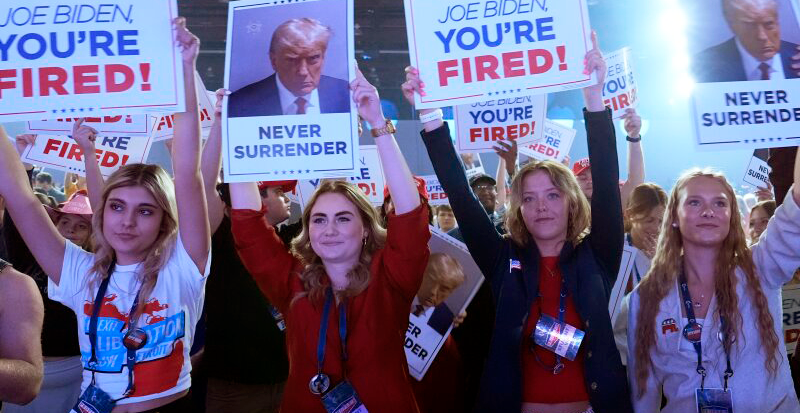 Kerby Anderson
Kerby Anderson
How effective will the political campaigns this fall appeal to young voters? Most don’t like the fact that 2024 looks like 2020. And as one of my radio guests explained: “I am 28, and I am not excited about having a candidate running who is the reverse of my age (82).”
New polling from Democratic firm Blueprint shows how skeptical and disillusioned young voters are about their choices for president and members of Congress and the state legislatures. Registered voters 18-30-years-old were polled by asking them to respond to a series of questions.
Nearly a majority (49%) agreed to some extent that elections in this country don’t represent them. And a majority (51%) agreed to some extent that the political system in the US “doesn’t work for people like me.”
These comments match what I mentioned last month when I quoted Scott Galloway who reminded us that, “the last two generations are making less money on an inflation adjusted basis.” He argued that the social contract in America has broken because “for the first time in the US’s history a 30-year-old is no longer doing as well as his or her parents were at 30.”
An even more significant finding from the survey was the fact that nearly two-thirds (64%) agreed that “America is in decline.” And the same percentage agreed that “nearly all politicians are corrupt and make money from their political power.”
We shouldn’t be surprised at that answer. Just read one of the many books by Peter Schweizer (Profiles in Corruption, Clinton Cash, Red Handed, Blood Money). He has been on my radio program for the last few decades documenting corruption at every level of government.
It appears that candidates this fall will have a major challenge to convince young voters to elect them.
 Listen Online
Listen Online Watch Online
Watch Online Find a Station in Your Area
Find a Station in Your Area










 Listen Now
Listen Now Watch Online
Watch Online
